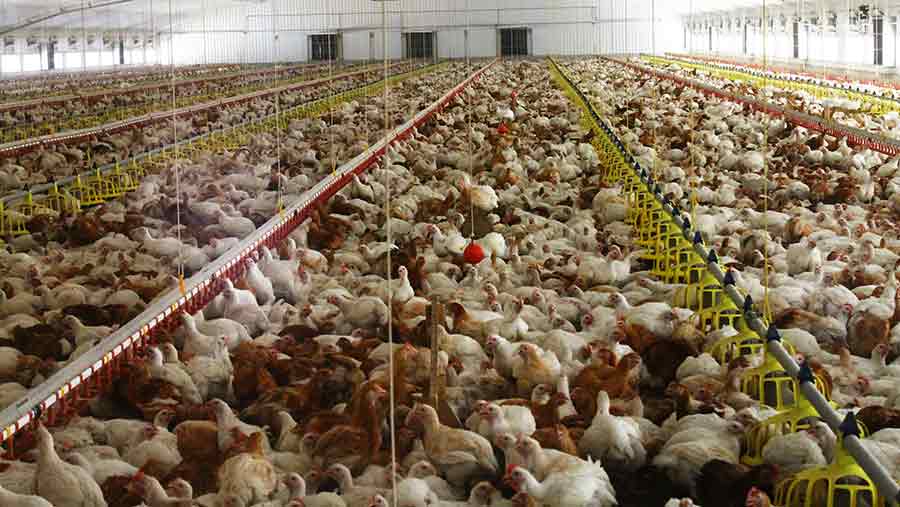RSPCA Assured bans thinning of chickens on supplier farms
 Frogmary Green
Frogmary Green Broiler growers producing chicken under the RSPCA Assured label (previously branded Freedom Food) are to be banned from thinning their flocks from 1 January 2016.
The society says that this will have two main benefits – improving the welfare of the birds and helping to reduce campylobacter levels.
In practical terms, this means that growers will have to reduce the number of chicks they take into each shed dedicated to the RSPCA Assured scheme.
See also: New RSPCA Assured labels hit the high street
Currently, they are allowed to stock a maximum of 19 birds/sq m, sufficient to respect the 30kg/sq m limit if at least a quarter of the birds are taken out before they reach 2kg.
But under the new rules, RSPCA Assured growers will be limited to a maximum of 15 birds/sq m, with no thinning permitted.
“Our ban on thinning will be a major step forward for the welfare of chickens,” said welfare specialist at the RSPCA, Marc Cooper.
“Thinning can be a stressful experience for the birds as their feed is removed to allow catching teams to round-up the birds more easily.
“Also, the temperature inside the shed can drop, particularly during the winter, as teams of catchers enter.”
Mr Cooper also points to a European Food Safety Authority report which suggests thinning is linked to increased levels of campylobacter – both as a result of stress on the birds and biosecurity breakdowns from people entering the shed.
Reduced output
The decision to ban thinning has triggered a mixed response among growers.
Clare Bragg, who produces over 100,000 RSPCA Assured birds at Frogmary Green Farm in Somerset, said the move was good in terms of reducing stress on both the chickens and the stockmen. And it could be better in terms of campylobacter.
“But what we don’t know is what the financial impact will be,” she said. “Our next crop will be reduced by 20-25%, so we will be producing less. But will there be any price increase to help compensate?
“That will depend on whether the retailer charges any more in the shop, and whether the processor passes that back. We are much further down the line.”
Dr Cooper admitted production costs would rise. But he said the intention to end thinning on 1 January 2016 had been written into the Freedom Food standards in April 2011, and producers had been notified then. “They have had five years to prepare for this.”
A spokesman for chick producer PD Hook said that the company had already started scaling back chick deliveries to RSPCA Assured growers, to ensure their sheds would not break stocking rules in the New Year, and was communicating this to those affected.
Currently, the majority of RSPCA Assured chicken, which is still a niche product, is sold in Sainsbury’s.
